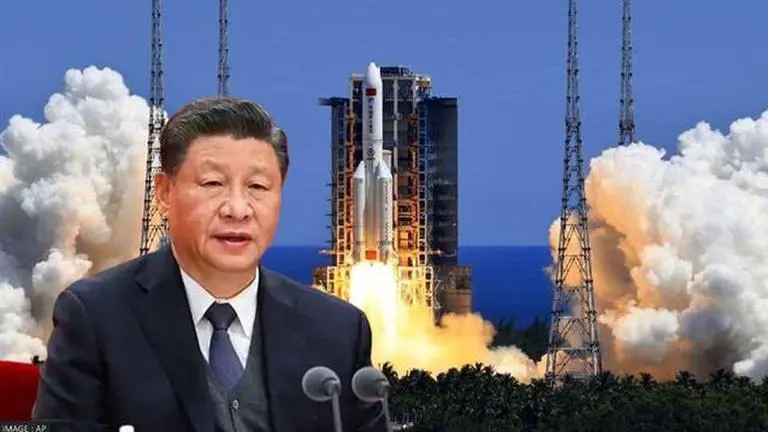Updated 3 April 2023 at 13:11 IST
China hits big milestone as first private liquid-fuelled rocket shoots into space
China's first privately-constructed liquid-fuelled rocket jetted off from the Jiuquan Satellite Launch Center to space on Sunday, April 2, 2023.
- Science News
- 2 min read

China's first privately-constructed liquid-fuelled rocket jetted off to space on Sunday, carrying a satellite into orbit. The liftoff occurred at the Jiuquan Satellite Launch Center in northwest China and marked the maiden flight of the TL-2 Y1 rocket, a carrier rocket made by Beijing-based firm Space Pioneer.
According to RT, the rocket took off on the afternoon of Sunday and successfully placed the satellite in orbit around 500 kilometers above earth. The launch made Space Pioneer the third private firm in China to perform an orbital mission, after i-Space and Galactic Energy.
But it also made the company the first to carry out the launch liquid-propellant rocket into orbit, a relatively complex task than a solid-propellant rocket launch. Sunday's launch is one of the many that China has planned for this year as it attempts to dive deeper into space exploration. This year, the country is expecting to deploy over 200 spacecraft.
China's first commercial liquid-fueled carrier rocket Tianlong-2 Y1, developed by Chinese commercial rocket company Space Pioneer, has successfully made its maiden launch from the Jiuquan Satellite Launch Center on Sunday. pic.twitter.com/wtXJNO7TwD
— Caoli 曹利 (@Cao_Li_CHN) April 3, 2023
China eyes 60 space launch missions for this year
Earlier this year in January, state-owned space firm CASC said that it will be performing 60 space launch missions in 2023, which will include two crewed missions to the Tiangong space station and a maiden flight of the Long March 6C carrier rocket. 2022 was also a productive year for China, as it carried out 64 launches, just 23 less launches conducted by the United States.
Advertisement
Earlier in February, South China Morning Post reported that Beijing could be planning to construct a large satellite network to dethrone Elon Musk's Starlink. The plan, code-named "GW", will comprise the construction of 12,992 satellites that will be owned by China Satellite Network Group Co, according to a team led by associate professor Xu Can with the People’s Liberation Army’s (PLA) Space Engineering University. The satellites are likely to be deployed in “orbits where the Starlink constellation has not yet reached" as that would help “gain opportunities and advantages at other orbital altitudes, and even suppress Starlink".
Published By : Deeksha Sharma
Published On: 3 April 2023 at 13:11 IST
